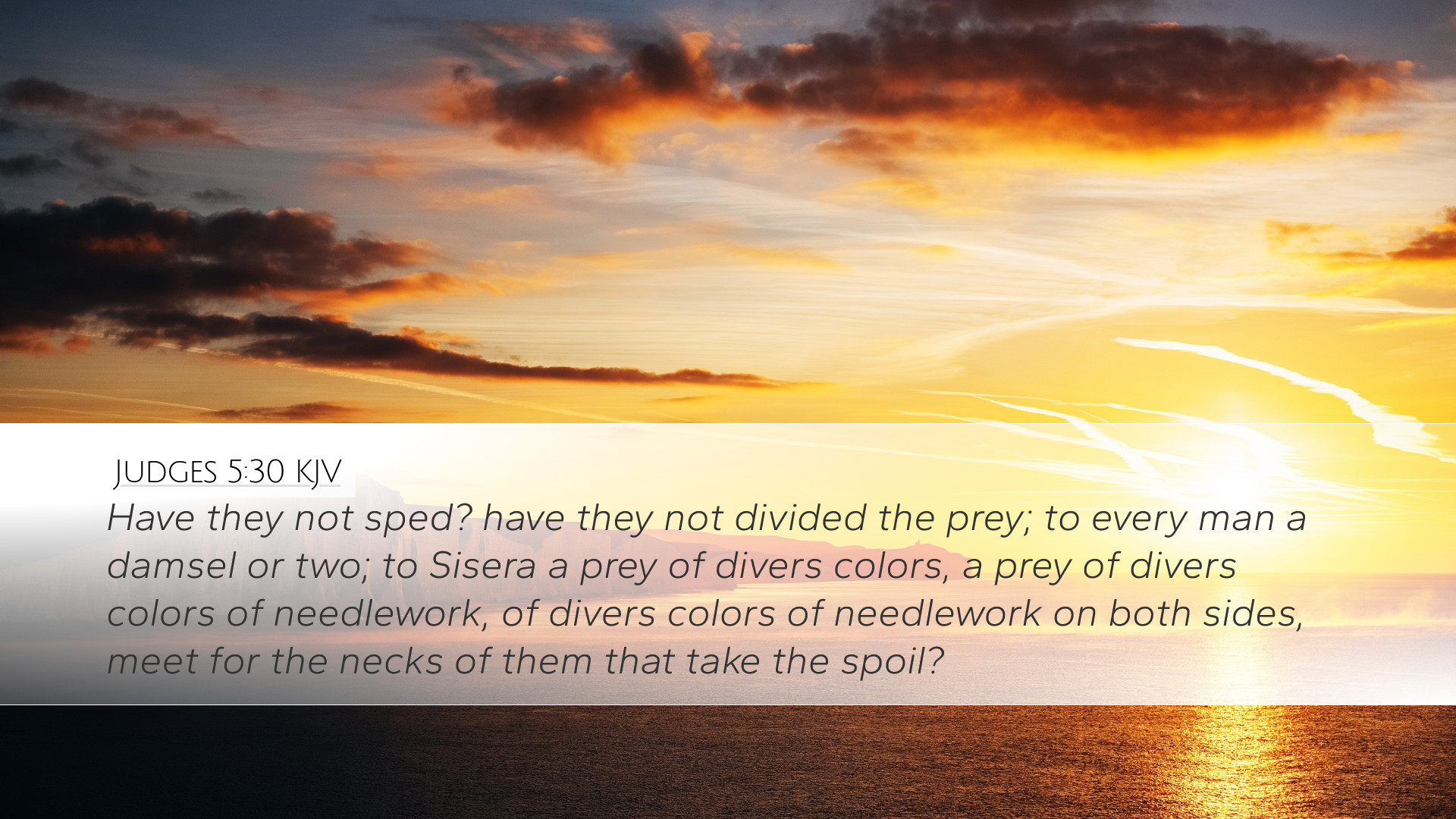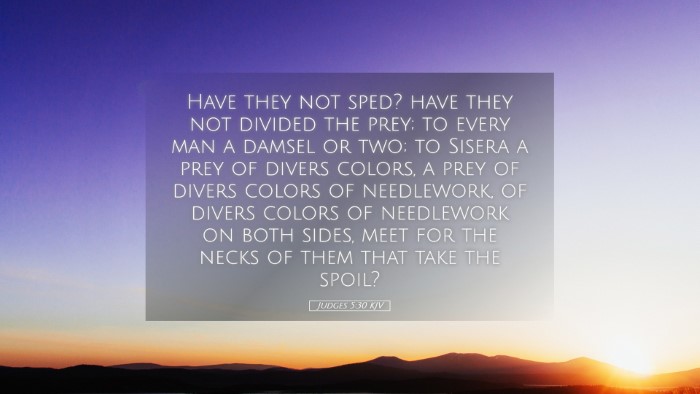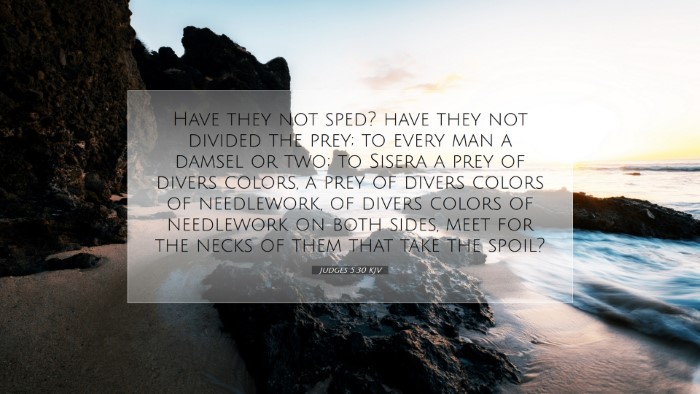Commentary on Judges 5:30
Judges 5:30 states: "Have they not found, have they not divided the prey; to every man a damsel or two; to Sisera a prey of divers colours, a prey of divers colours of needlework, of divers colours of needlework on both sides, meet for the necks of them that take the spoil?"
Historical Context
This verse occurs within the context of Deborah and Barak's song of victory after the defeat of Sisera, the commander of Jabin's army. The passage reflects the celebration and triumph that followed the battle, illustrating various elements of the spoils taken by the warriors.
Matthew Henry notes the cultural significance of division of spoils in ancient warfare, where victors were entitled to a share of the loot, often including valuables and slaves. The spoils serve not only as rewards but also as symbols of God's favor upon Israel in their struggle against oppression.
Theological Implications
This passage provides a reflection on divine deliverance and human involvement in God's plan. Albert Barnes remarks that the specific mention of "damsels" highlights the societal norms of the time where women were often regarded as spoils of war, raising ethical considerations about the treatment of enemies and captives.
Furthermore, the use of "needlework" signifies craftsmanship and beauty, suggesting that the spoils included not only material wealth but also elements of artistry and culture, reinforcing God's provision for His people, as highlighted in Adam Clarke's commentary.
Literary Analysis
The verse employs repetition of the phrase "divers colours" to emphasize the richness and variety of the spoils. Henry points out that the redundancy of this phrase underscores not only abundance but also the lavishness of what was taken from Sisera. The mention of clothing and adornments reflects a noteworthy aspect of Israel's victory — they were not merely fighting for survival but also for a restoration of dignity and beauty.
Additionally, the reference to the spoils met for the necks of the victors metaphorically illustrates the adornment and honor that accompanies victory. Clarke explains that spoils from conquered foes were used as status symbols, elevating the status of those who partook in the victory.
Spiritual Reflections
This verse encourages reflection on spiritual warfare and victory in a contemporary Christian context. The spoils of war serve as a metaphor for the blessings received through spiritual battles, where victory in faith leads to rewards both seen and unseen. Barnes indicates that every believer participates in this ongoing fight against sin and oppression, with Christ ultimately being the victorious warrior who liberates His people.
Moreover, the use of "damsels" can be seen as a caution to maintain a kingdom perspective on our victories, reminding believers to value humanity and compassion regardless of the situations that surround us. The ethic of care and recognition of the dignity of all people must inform our understanding of victory.
Conclusion
Judges 5:30 encapsulates themes of victory, divine favor, and ethical considerations within the context of warfare and spoils. The reflections herein challenge modern readers to engage critically with Scripture, recognizing how ancient narratives inform contemporary faith practice. It encourages both acknowledgment of God’s provision and the reminder to value righteousness as we partake in the benefits of spiritual victories.


